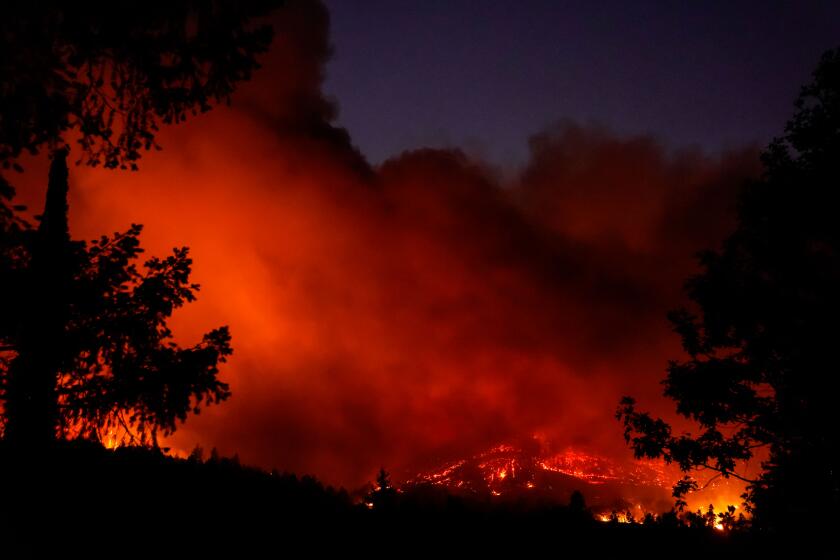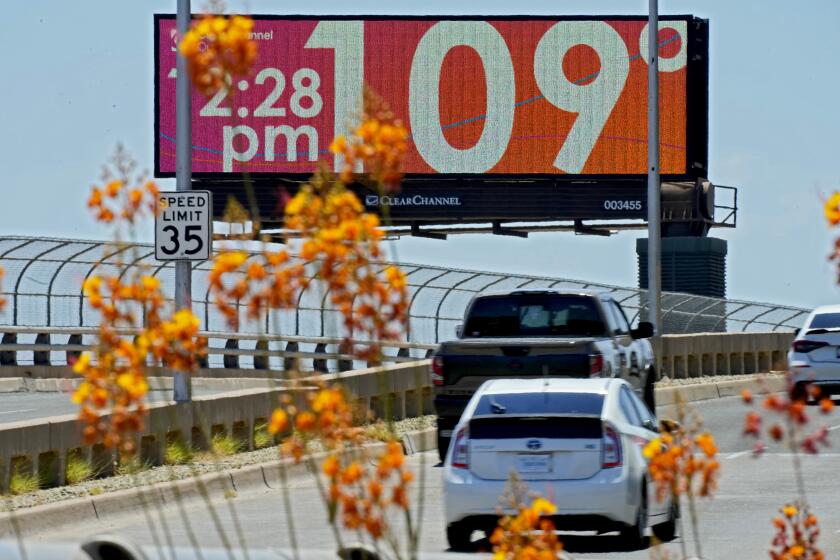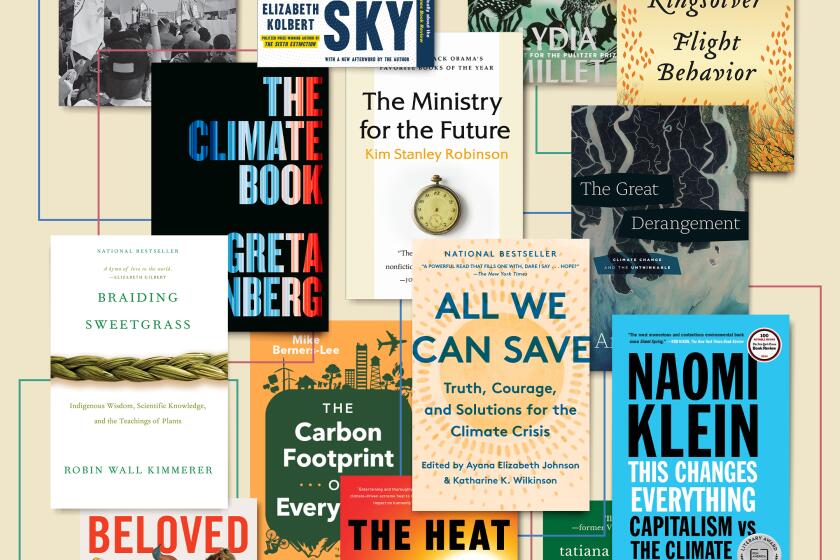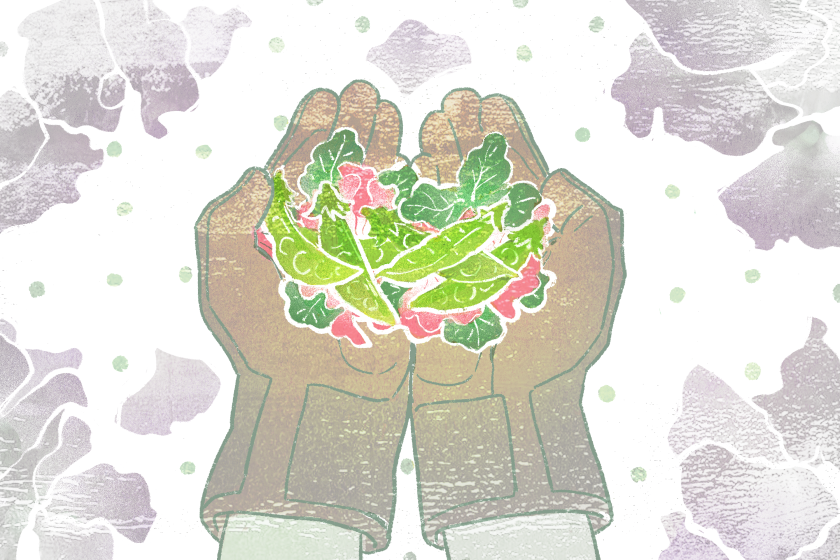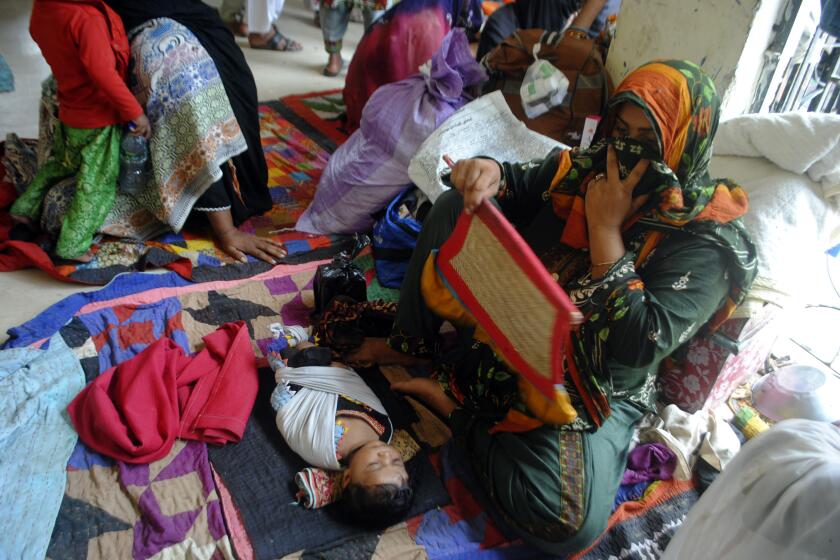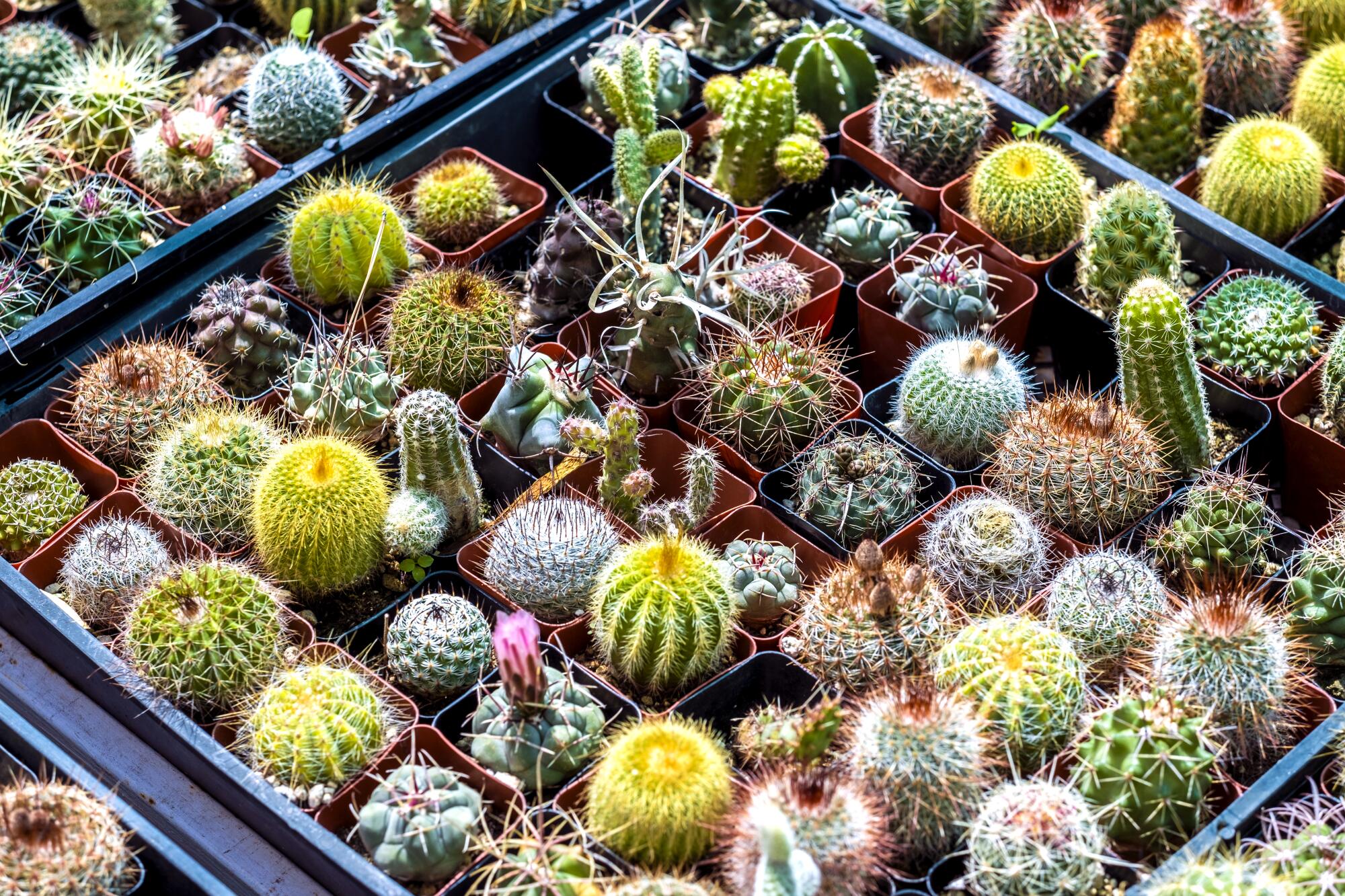
- Share via
The cactuses arrived strapped down to sheets of plywood in the back of a truck. They had been uprooted from a swath of scrub that was slated for development before coming to us: a nature reserve in need of plants for a restoration project along a coastal bluff in Southern California.
It’s been 20 years since I did that work, and when I look back on it, I cannot help but understand it as an analog for migration, all those unruly bodies in transit out of a landscape that was about to vanish.
‘Cli-fi’ is a growing genre as drought, blizzards, heat waves and wildfires reshape our lives. But it doesn’t have to be dystopian.
As an ecological restorationist, I’ve long felt that Asian American perspectives and those of other immigrant communities have been sidelined in the American environmental conversation, which tends to feel like a dialectical tug of war between whiteness and Indigeneity. It took me several decades to even begin to imagine the possibilities of immigrant environmentalism.
In that time, the public’s conception of climate change transformed from a future concern into a maelstrom of heat domes, atmospheric rivers, fires, floods and droughts. Climate catastrophe has already begun transforming all our homes into unfamiliar and dangerous terrain. We’ve never needed immigrant environmentalism more than we do today, and we’ll need its insights even more in the future.
Some people say the best way to battle climate change is with optimism. Here’s why that won’t work.
As a young ecologist, I viewed my work through the lens of American environmental literature. “One of the penalties of an ecological education,” Aldo Leopold writes in “A Sand County Almanac,” “is that one lives alone in a world of wounds.” Leopold explains that this is because ecological damage is so often invisible to laymen, so only a select handful of ecologists understand what a damaged ecosystem looks like and what the long-term consequences of this damage could be.
I was deeply drawn to the concept of living alone in a world of wounds. Reading Leopold allowed me to believe I was on nature’s side, one of the educated few who had the capacity to grieve for ecological destruction. I imagined that I was lonely, but it was a romanticized loneliness because my friends and my colleagues and all my favorite authors were in on the secret too.
The writing’s on the wall — and in these books on climate change. Environmental reporter Rosanna Xia shares a list of some of her go-to books.
But I’ve come to believe that my sentimental attachment to Leopold’s romantic writing was a mistake, and not just a personal one, more of a collective misstep in American environmental sentiment that has narrowed the possibilities of how we imagine our relation to nature. We’ve all got this urge to be on the “right side of things” rather than reckoning openly with what it means to relate to nature as invaders or destroyers.
In 2013, Robin Wall Kimmerer’s “Braiding Sweetgrass” skyrocketed into national popularity. It’s an important and beautifully written book that cracked the largely white environmental canon. Kimmerer introduces the idea of “becoming indigenous,” speculating that one might become Indigenous by taking care of the land “as if our lives, both material and spiritual, depended on it.”
I cannot count how many friends have raised this part of Kimmerer’s book in casual discussion as if they’d finally found the key to a long-locked gate — “Can you believe it?” their faces exclaim, “We can finally all become Indigenous!”
California’s ominous winter proved the planet is in terrible flux. To save what we can, head for the garden.
I’d like to believe that I’ve spent my lifetime taking care of the land, that I’ve turned to it for sanctuary and sustenance, but I didn’t “become Indigenous,” any more than I became white American. Instead, I relate to nature as a multiracial second-generation Chinese immigrant.
I stopped believing in mainstream American environmental romanticism when my father’s mother died in her tiny condo kitchen in the outskirts of Taipei, Taiwan, across the strait from anywhere that had ever seemed like home. At the bidding of our family’s spiritual advisor, we folded origami lotus leaves and ingots of paper gold. The gold was all that she’d bring with her to the afterlife, and the lotus leaves would buoy her footsteps along the way.
Even though she had imagined she’d be buried, our family ended up settling for cremation because the monastery’s crowded grounds had no more room for bodies. When my grandmother left this world without a plot of land to call her own, when I watched my father sift through the incinerator’s ashes to salvage the remaining shards of bone, when he asked me to do the same, it was undeniably obvious that I had been denying the extent to which my family was severed from the land.
Climate is increasingly a key driver for migration. Asylum guidelines should be updated accordingly.
Global warming is expanding that experience. Climate fiction, or cli fi, is often premised upon the notion of the climate refugee, and it seems increasingly clear that climate-change-driven migration will scatter much of humanity in new diasporas. So why, when climate catastrophe migration may reshape global politics, are immigrant perspectives still steadfastly excluded from mainstream environmental discourses?
Every immigrant knows the anguish of estrangement. As a second-generation immigrant, I know it doubly in my estrangement on American soil and my even greater disorientation returning to my family’s historical homes in Taiwan and mainland China. Out of this anguish, new questions emerge.
How am I connected to the land if my family’s history falls far outside American myth? What if I could stop thinking of my own rootlessness as a deficiency? What if we acknowledged rootlessness as wisdom, a rejection of the idea that the only way to know something is to own it? What if we started imagining the wisdom of diaspora communities as wisdom that could help us prepare for and live with climate change?
As climate catastrophe turns all of us into strangers on the land, I can’t help but wonder whether the questions that have rendered me an outsider to the American environmental imagination will become the questions that all of us should be asking.
Jenny Liou is an ecologist and currently teaches at Pierce College. She is the author of the poetry collection “Muscle Memory” and is at work on a book of essays on ecology and Asian American identity. @jennyjadeliou
More to Read
A cure for the common opinion
Get thought-provoking perspectives with our weekly newsletter.
You may occasionally receive promotional content from the Los Angeles Times.
